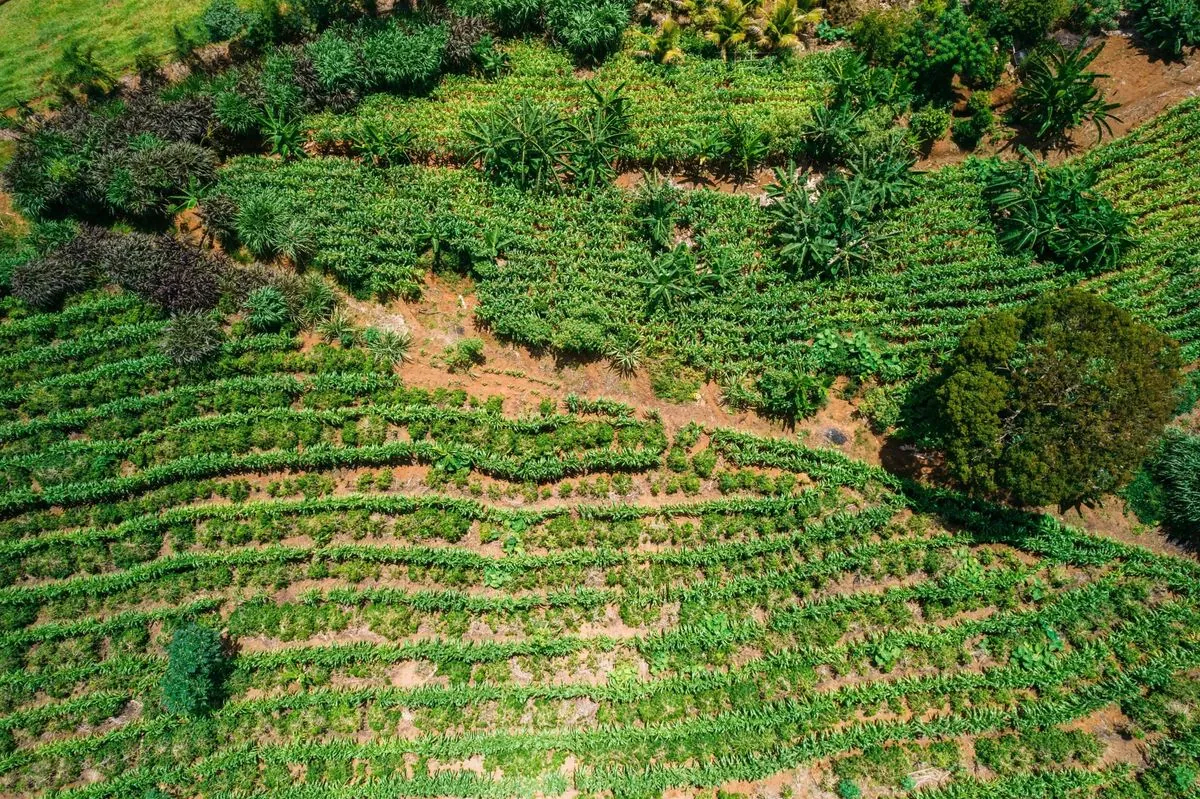Coffee, the world's second most valuable commodity after oil, faces unprecedented challenges due to climate change. With 120 million people depending on coffee for their livelihoods, the industry is at a critical juncture. Climate simulations suggest that areas suitable for coffee cultivation could decrease by 50% by 2050, putting the future of this beloved beverage at risk.
In Brazil, the world's largest coffee producer, farmers are taking innovative steps to address these challenges. Marcelo Montanari, a fourth-generation coffee farmer in the Cerrado Mineiro region, has been implementing regenerative agriculture techniques for the past decade. His 250-hectare farm showcases the potential of these methods to enhance climate resilience.
Montanari's approach includes:
- Reducing chemical fertilizers and pesticides
- Implementing integrated pest management
- Preserving 36% of his property for natural vegetation
- Interspersing coffee plants with native trees
These practices have significantly improved water retention on Montanari's farm, providing a 30-day water reserve – a crucial advantage in drought-prone regions.
Paula Curiacos Urtado and Marcelo Cocco Urtado, owners of Fazenda Tres Meninas, have taken regenerative agriculture even further. Since acquiring their 54-hectare farm in 2016, they have implemented 100% natural methods to nourish the soil and combat pests and diseases. Their innovative approach includes:
- Using a mixture of cover crops to improve soil health
- Integrating native shrubs and trees as windbreaks
- Placing bee houses to enhance pollination
- Modifying farm machinery to work with cover crops
The Urtados' efforts have paid off, with yields significantly higher than the Brazilian average and improved resilience to extreme weather events.
Major coffee companies are supporting this transition. Nespresso, for instance, aims to convert 95% of its 150,000 sourcing farms to regenerative practices by 2030. Nestle is partnering with Rainforest Alliance to implement a Regenerative Agriculture Scorecard for coffee certification.
"The future of coffee is in danger. We strongly believe that regenerative agriculture is how we protect it."
However, challenges remain. The transition period can be financially difficult for farmers, especially smallholders. Industry support, including training, crop insurance, and microfinance, is crucial to overcome these hurdles.
The potential for carbon markets to provide additional income for regenerative farmers is being explored. Regenagri, a global certification organization, reports that coffee grown on its certified farms in Brazil showed a reduction of 1.99 tonnes of CO2 equivalent per tonne of coffee compared to conventional methods.
As the coffee industry grapples with climate change, the pioneering efforts of Brazilian farmers like Montanari and the Urtados offer hope. Their success demonstrates that regenerative agriculture can not only protect coffee production but also enhance yields and farmer livelihoods. With continued support from industry leaders and innovative financing solutions, these practices could secure the future of coffee for generations to come.
